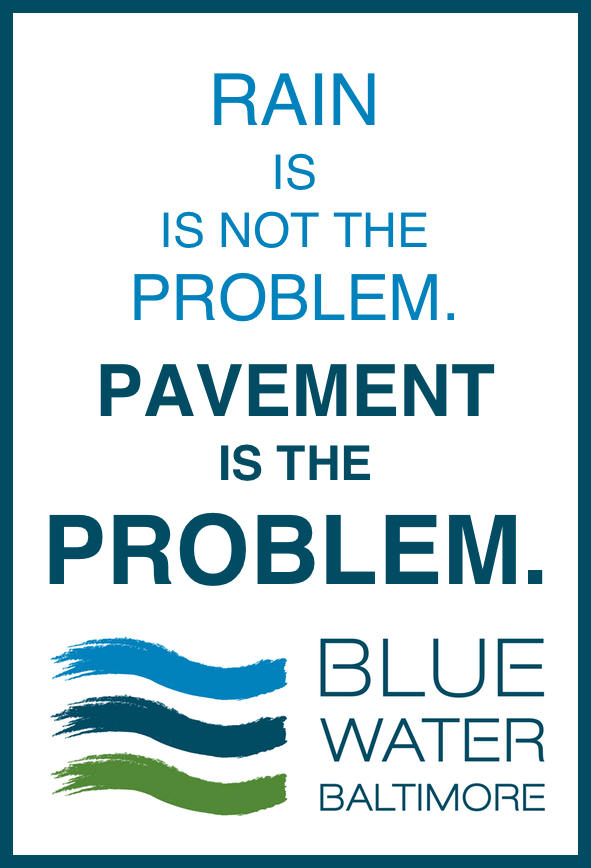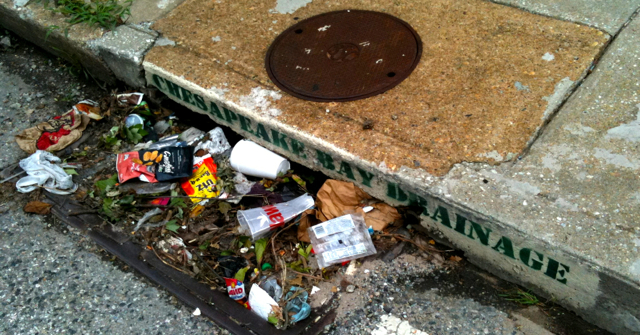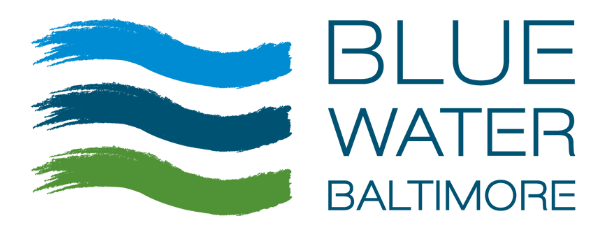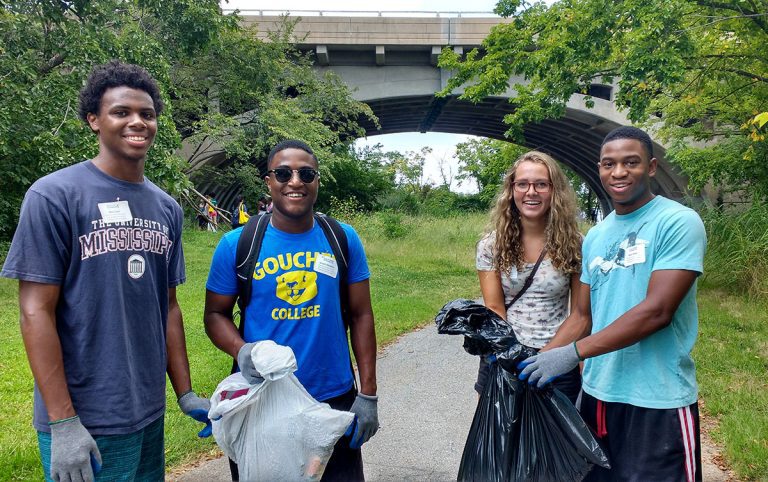Rain is Not the Problem. Pavement is the Problem.
 Can you imagine a city without impervious surfaces?
Can you imagine a city without impervious surfaces?
Actually, engineers call them “impervious surfaces”. People in Baltimore know them as streets, sidewalks, parking lots, and roofs.
These hard surfaces make urban and suburban life possible, but they also cause big environmental problems.
In a natural environment, soft surfaces like meadows and forests can absorb and store most of the rain that falls on them. But in urban and suburban environments, that same rain runs off the hard surfaces and straight into our streams, rivers, the Baltimore Harbor, and the Chesapeake Bay.
Unnatural runoff is created in much greater amounts than our streams can handle, is often hotter than our wildlife can handle (ever walk on black asphalt in July in bare feet?), and usually carries all sorts of trash and pollution with it.
This is why cities and counties around the Chesapeake Bay are taking steps to reduce the damage caused by polluted urban and suburban runoff.
Taking action by installing rain gardens, upgrading sewage treatment plants, eliminating unused asphalt, reducing illegal fertilizer applications, and planting more trees can reduce the negative impact of hard surfaces and make our waterways healthier and more enjoyable for residents.
These are the kind of actions Blue Water Baltimore and our supporters take regularly, and we are starting to make a difference.
Critics mock environmental concerns by using terms like “rain tax”, but water pollution is too important an issue to mock for political gain.
 Urban and suburban polluted runoff is the only growing source of pollution in the Chesapeake Bay, and it is time we started working harder to stop it.
Urban and suburban polluted runoff is the only growing source of pollution in the Chesapeake Bay, and it is time we started working harder to stop it.
Baltimore’s stormwater remediation fee has a boring name but an important purpose.
It provides a direct and accountable method for funding projects to reduce polluted runoff, and it asks people causing the most pollution – people and organizations that own the most the most hard surfaces – to pay their fair share.
The fee is based on the reality that we all generate polluted runoff, we all use a poorly maintained and underfunded stormwater system to deal with that runoff, and our streams, Harbor, and Bay are paying the price.
That’s why Blue Water Baltimore thinks this kind of user fee is an important piece of our clean water solution.
In 2014, Blue Water Baltimore will be a leading champion on this issue. We will be busy at the state level making sure the environmental protections are kept, and hard at work locally making sure money is spent the way it needs to be.
That’s why we want your help defending the fee.
This fight is likely to be expensive, so please consider making a gift to Blue Water Baltimore.
But more importantly, legislators need to hear from clean water champions like you.
Blue Water Baltimore will be meeting with elected representatives across Baltimore and in Annapolis to make the case for clean water and strong communities, and we want you to join us – it is imperative that decision makers hear from you!
If you would be willing to attend a meeting with your legislator, or even just send a letter of support, please click here to let Kristen Weiss – our Senior Manager for Public Policy & Legislative Advocacy – know.
Kristen will contact you when legislative issues emerge in the General Assembly, City Council, or County Council.

